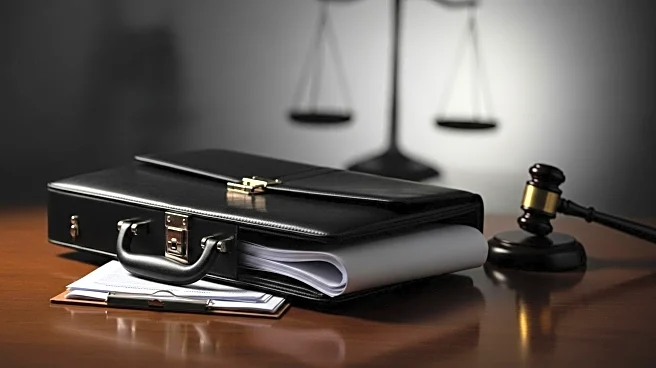What's Happening?
John Bolton, former national security adviser to President Trump, is expected to be charged with federal crimes soon, according to federal officials. The charges are anticipated to be brought by the U.S. Attorney’s Office in Maryland, where Bolton resides. This development follows FBI searches of Bolton's Maryland home and Washington, D.C. office in August, part of a national security investigation concerning classified records. The investigation reportedly began during the Biden administration and involves potential violations of the Espionage Act. Bolton's lawyer, Abbe Lowell, has stated that the documents in question date back to the George W. Bush administration, when Bolton served as U.S. ambassador to the United Nations.
Why It's Important?
The impending charges against John Bolton highlight ongoing tensions between President Trump and his critics. Bolton, a vocal critic of Trump, particularly on foreign policy, has been targeted by Trump in the past, including public calls for his prosecution. The case underscores the broader issue of handling classified materials, a topic that has been contentious in U.S. politics, especially following Trump's own legal challenges regarding classified documents. The charges against Bolton could further polarize political discourse and impact public perception of national security protocols.
What's Next?
If indicted, Bolton would be the third Trump critic to face criminal charges recently, following former FBI Director James Comey and New York Attorney General Letitia James. The legal proceedings could lead to significant political ramifications, potentially influencing public opinion and future policy decisions regarding national security and the handling of classified information. The case may also prompt reactions from political leaders and civil society groups, given its implications for transparency and accountability in government.
Beyond the Headlines
The investigation into Bolton's handling of classified materials raises ethical and legal questions about the balance between national security and freedom of speech. Bolton's case could set precedents for how former government officials are treated concerning classified information, especially those who have become critics of the administration they served. The situation also reflects broader cultural and political divides in the U.S., as it involves high-profile figures and contentious issues.









